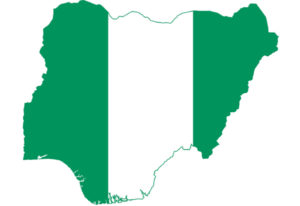
The recent revelation that over 200 Nigerians are languishing in Togo prisons is disturbing. While some of the victims are seeking for the proverbial greener pastures, others are there for business. The sad development was made public when the President of the Global Society for Anti-Corruption in Nigeria, Mr. Franklin Ezeona, petitioned President Muhammadu Buhari on the plight of Nigerians in Togo Prisons.
According to the non-governmental organisation, over 200 Nigerians are presently held in Togo prisons for between six and ten years without trials or convictions. Most of the inmates are forced to sleep on bare floors in small prison rooms in Lome, the Togolese capital. They are also subjected to inhuman treatment by prison officials. They are also exposed to debilitating health conditions that many of them are suffering from malaria and tuberculosis.
It is sad that these Nigerians are held in Togo prisons in dehumanising conditions. It is worth pointing out that many other Nigerians are also languishing in foreign prisons in European and Asian countries for sundry reasons. About 170,000 Nigerians are currently languishing in foreign prisons. Not less than 600 Nigerians are in various prisons in China, 1,500 in Cambodia and 96 in Indonesia. About 3,719 Nigerians are held in Canada for some offences while over 750 are in British jails. There is hardly any country in the world that our citizens would not be found in their prisons. The Federal government should see this as a problem that demands urgent attention.
However, it must be emphasised that under international law, all persons, irrespective of nationalities, have equally guaranteed basic human rights and the right to fair treatment. Though foreigners are bound to obey the subsisting laws of particular countries they find themselves, the right to fair treatment can never be denied anyone.
That is why we are miffed that over 200 of our citizens could be held in these dehumanising conditions in an otherwise friendly and neighbouring West African country. Togo as a member of the African Union (AU) and the Economic Community of West African States (ECOWAS) is bound to treat our nationals better, and we urge our government to draw the attention of the Togolese authorities to this key point, if they do not realise it already.
From the disclosures of the NGO, the Nigerian embassy in Togo and the Diaspora Affairs Commission have been communicated and adequately informed of the plight of these nationals. What we expect is for these agencies of government to quickly move in and engage their Togolese counterparts to ensure that the cases of these nationals are re-evaluated on individual merit. This latter point is very important, because as some of these our citizens have alleged, some of them are being held up for trumped up, or at best, frivolous charges.
Their cases deserve a thorough and painstaking review on their individual merit, and when anyone is found to be held illegally, such a person should be freed, reunited with their families and fully re-integrated into the larger society. All responsible governments owe their citizens this minimum duty, and our nationals presently languishing in prisons in Togo should not be denied this. For those who may have been found to have substantially violated the laws of their host country, our government must explore the possibility of bringing them home to serve their terms.
Even if the prisons here at home may not be any better than those described in our West African neighbouring country, there is the added relief, these currently traumatised persons can get by realising that they are after all, in their country. As we have noted earlier, Togo enjoys a friendly and warm relationship with Nigeria with a shared history of being founding members of the ECOWAS. This long-standing and healthy relationship should be exploited by our government and its relevant agencies to the advantage of our nationals who are presently languishing in the Togo prisons.
In the unexpected circumstance that our West African neighbour refuses all peaceful overtures to it to relieve the conditions of our nationals in their prisons, our country could be left with no other choice than to invoke the principle of reciprocity as a last resort. We have the capacity to give in equal measure to their nationals in our midst, as we are presently receiving too. Let the matter be resolved amicably.
